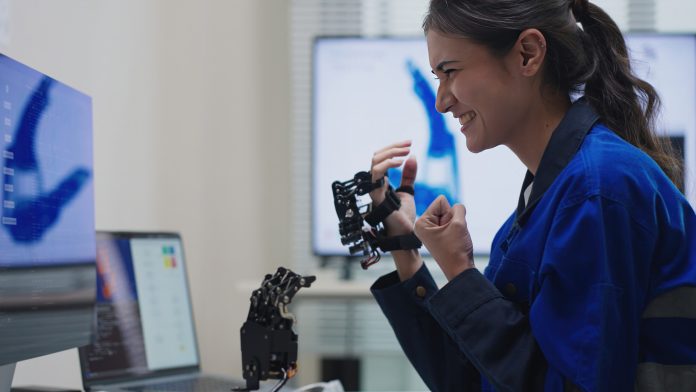The EU’s research and innovation policies, both past and present, are examined by Open Access Government
The European Commission’s Directorate-General for Research and Innovation (DG Research) oversees the European Union’s (EU) science, research and innovation policies. The goal is to stimulate growth and jobs while addressing significant societal challenges.
The leadership team includes Ekaterina Zaharieva, European Commissioner for Startups, Research and Innovation (2024-2029). DG Research and Innovation’s Leadership and organisation also includes Marc Lemaître, the Director-General, Signe Ratso, the Deputy Director-General and Joanna Drake, Deputy Director-General. (1)
EU research and innovation: Looking ahead
As Commissioner for Startups, Research, and Innovation, Zaharieva is tasked with driving the EU’s ambition to centre research, innovation, science, and technology in the economy. She aims to foster collaboration and investment, creating the conditions needed for researchers to develop new skills, thrive and generate the innovations necessary for the EU’s competitiveness, sustainability and security goals.
Commissioner Zaharieva’s responsibilities include expanding the European Research Council and the European Innovation Council, proposing a European Research Area Act to ensure the free movement of researchers, technology and scientific knowledge, and developing a long-term strategy to enhance European Research Infrastructure. She will also work on a European Innovation Act to facilitate access to venture capital and streamline the regulatory framework.
Additionally, Commissioner Zaharieva will focus on supporting EU start-ups and scale-ups, making a network of Trusted Investors to connect deep tech investors throughout Europe. She plans to prepare a new Strategy for European Life Sciences “to unlock high-value technologies”. She will work on an Advanced Materials Act to support the research and innovation process from manufacturing to deployment.
Finally, Commissioner Zaharieva’s aims include increasing the adoption of artificial intelligence by European scientists, helping to establish a European AI Research Council, and overseeing the funding from EU research and innovation programs like the EU Missions and Horizon Europe. (2)
President von der Leyen’s mission letter
In President von der Leyen’s mission letter to Ekaterina Zaharieva, she outlines a clear goal regarding Europe’s competitiveness in the transition to a clean and digital economy. This objective will require prioritising research, innovation, science, and technology at the core of Europe’s economy.
“This will entail more investment and cooperation, the right conditions for researchers to thrive and develop new skills, and a clearer focus on the most important and disruptive innovation needed for our competitiveness, security and sustainability goals,” President von der Leyen added.
President von der Leyen stated that Ekaterina Zaharieva will play a critical role in this ambition, driving the EU’s scientific and technological progress from basic research to applied innovation. President von der Leyen urges that research and innovation must become an ever-greater part of our competitive edge in today’s global economy. (3)
Implementing the European Research Area
While looking to the future, we can also look to the recent past. For example, in late October 2024, we observe that while the EU has made significant strides in creating a more integrated, efficient, and appealing single market for research and innovation (R&I), there is still more work to be done to realise its full potential.
The Communication’s conclusions on implementing the European Research Area (ERA), adopted by the Commission, reaffirm its commitment to placing research and innovation at the core of Europe’s future growth. As emphasised in the Draghi report and the Political Guidelines for the next Commission, research and innovation are essential drivers of competitiveness, economic resilience and wellbeing.
Launched in 2000 to address the fragmentation in the European research landscape and receive renewed focus in 2020, the ERA aims to create a dynamic and attractive environment for researchers and innovators across Europe, making it their preferred destination. The new Communication assesses the progress made under the four strategic objectives agreed upon with member states and identifies areas where further work is required:
- Prioritising reforms and investments.
- Improving excellence access.
- Converting results into economic impact.
- Strengthening the ERA.
Iliana Ivanova, former Commissioner for Innovation, Research, Culture, Education and Youth (2023-2024), stated: “Now is the time to address the remaining challenges and unlock Europe’s full potential to prosper and compete on the global stage.” (4) In this optimistic spirit, we wish the next European Commission well as they advance their research and innovation policies over the next five years.
References
- https://commission.europa.eu/about/departments-and-executive-agencies/research-and-innovation_en
- https://commission.europa.eu/about/organisation/college-commissioners/ekaterina-zaharieva_en
- https://commission.europa.eu/document/download/833e082a-0c39-4bc6-a119-e0760ebc7360_en?filename=mission-letter-zaharieva.pdf
- https://ec.europa.eu/commission/presscorner/detail/en/ip_24_5361











